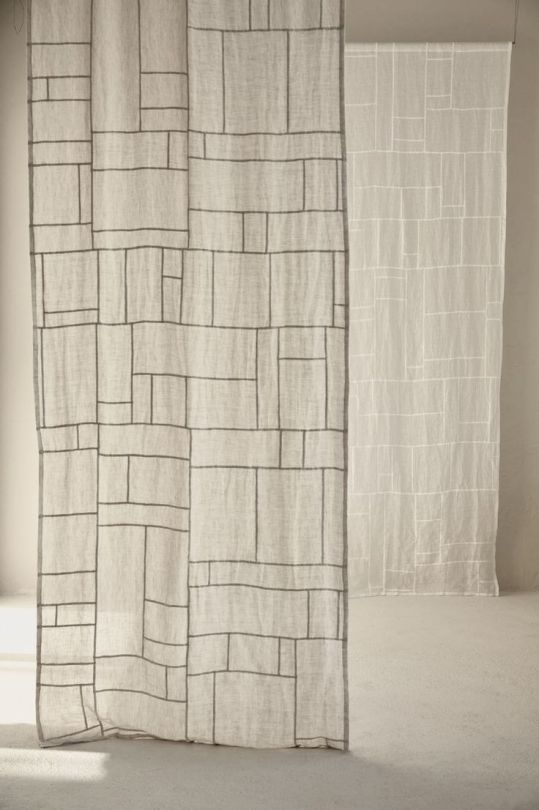#zero-waste
Text
The hair that drops in clumps on the floors of some salons in Kiel, a port city in northern Germany, is swept up to be turned into fabrics that filter oil from water. Parents who want to buy their children cloth nappies instead of disposable ones can apply for grants of up to €200 from the local authorities. At the city’s biggest festival last year, the organisers got rid of single-use cutlery and replaced it with a deposit system.
Germany is famed as a world leader in recycling – and Kiel, as I found out during a visit this summer, has some of the most weird and workable plans in the country to deal with its trash. It is the first German city to be declared “zero waste” by the environmental campaign group Zero Waste Europe. The certificate does not mean it has already stopped throwing things away – far from it – but rather that it has a concrete plan for how to do better.
“It’s one step in the right direction,” says Bettina Aust – a Green party politician who was elected president of Kiel city council in June – over a glass of juice made from apples that had been saved from landing in a supermarket bin. “You have to keep thinking further … You cannot stay still.”
Germany has a complicated relationship with waste. Despite its status as a world leader in recycling, Europe’s biggest economy is also one of its dirtiest. In 2021, the average German generated 646kg of waste, while the average EU citizen generated 530kg. Only in four EU countries – Austria, Luxembourg, Denmark and Belgium – did people throw away more.
Dino Klösen, a manager at Kiel’s waste management company ABK, says trends in the country’s consumption can be seen in its bins. Paper recycling bins that would have once been full of newspapers are now bursting with cardboard from delivery packages. “The weight of paper waste has dropped but the volume keeps rising from online shopping,” he says.
Awash with waste, cities like Kiel are exploring ways to throw away less and recycle more of what it does chuck. The city council has announced projects ranging from a ban on single-use items in public institutions, to installing more public drinking fountains, to teaching schoolchildren about waste. It is also encouraging people to make simple changes to their behaviour such as using solid bars of soap instead of buying plastic bottles of the stuff.
Other proposals are more systemic. The city is trialling a “pay as you throw” system where people are charged only for the rubbish they throw in the mixed waste bin. A report from the European Environment Agency last year found only about 30% of Germany is covered by such a scheme, even though areas that were covered saw an average drop in mixed waste of 25%.
“General waste is the most expensive form of rubbish there is,” says Klösen. “We are trying to motivate citizens to throw less waste in the bin by making them pay less for doing so.”
Even though waste-cutting efforts like Kiel’s are fairly novel in Germany, recycling is firmly rooted in the culture. In 2021, Germans collected more than two-thirds of their municipal solid waste to be repurposed – more than any other country in Europe. They burned most of the rest for energy, and dumped just 1% in landfills (the EU average is 16%).
25 notes
·
View notes
Photo
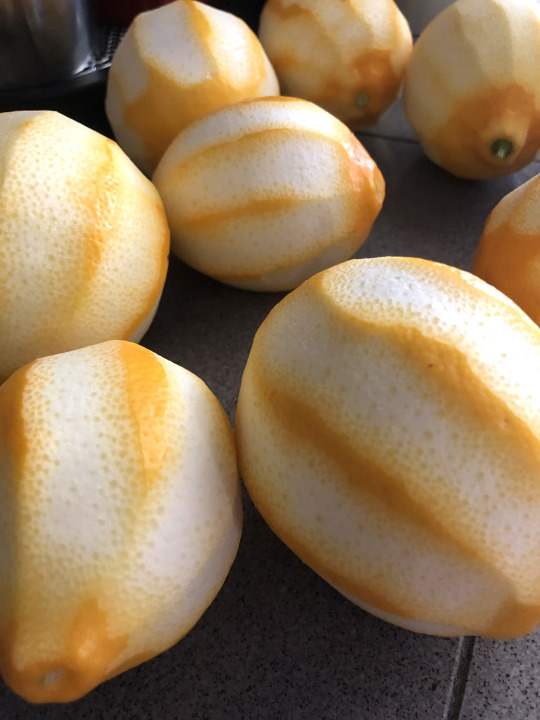
Naked Lemons
📷 by Sleepydrummer
#lemons#lemon#zero-waste#zero waste#sustainability#lemon zest#zest#candied lemon peel#essential oils#flavedo#nutrient-rich food#sleepydrummer#📷 by Sleepydrummer
6 notes
·
View notes
Text
Save Money on Paper Towels with Swedish Dishcloths
With prices rising in so many areas of my expenses, I am always on the lookout for ways to cut costs without sacrificing too much. If your household is anything like mine, you may find yourself constantly having to buy those large packs of paper towels. They are there in your kitchen usually on a holder, so conveniently located, that if there is ever a mess to clean up…Boom tear one off am I…

View On WordPress
#alternative#Cleaning#convenience#cooking#crochet#dishcloth#eco friendly#environment#kitchen#mess#paper towel#reusable#swedish dishcloth#zero-waste
0 notes
Text
Mother Nature Festival Live Inc. Press Conference - Earth Day
Mother Nature Festival Live Inc.
Press Conference
For Immediate Release
March 28, 2024Oswego, New York — Announcing the mission to stop global warming and the national environmental work of the 501 © 3 non-profit organization, Mother Nature Festival Live Inc.
Mother Nature Festival Live Inc. Partners with the National Climate Task Force and the American Climate Corps to Stop Global…
View On WordPress
0 notes
Text
Can We Recycle Paper Towels?
Paper towels are handy for cleaning up spills and messes, but what happens to them after we use them? Can we recycle paper towels? Let’s find out more about their eco-friendliness.
Understanding Paper Towels and Recycling
Paper towels, although seemingly simple in their function, are composed of intricate fibers that play a significant role in their absorbency and durability. Typically made…
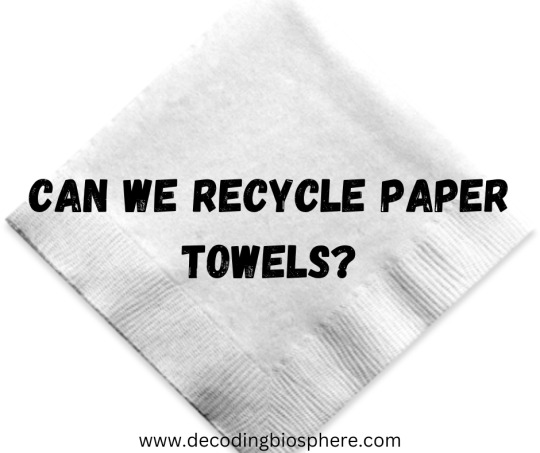
View On WordPress
0 notes
Text
10 Tips for a More Sustainable Lifestyle
10 Tips for a More Sustainable Lifestyle
Sustainable lifestyle is a desire of every human. Having a good lifestyle make us to be happy and be the best version of ourselves.
Here are 10 Tips for a More Sustained Lifestyle:
1. Read Books. There is much in books that many are still yet to tap into. Books can make you to travel in your imagination and expose you to things that you haven’t yet…
View On WordPress
0 notes
Text
As sustainability continues to be a crucial aspect of everyday living, zero-waste products are becoming increasingly popular. By reducing waste and promoting reuse, these eco-friendly items provide an alternative to everyday disposable items. One area where zero-waste products are significantly impacting is in everyday household items and personal care.Enter bamboo steamers, which provide a healthier cooking method and champion sustainability. Steaming food is a traditional cooking method that retains the nutritional contents of vegetables, meats, and fish, while bamboo offers both durability and biodegradability. Selecting a steam cooker that caters to sustainable living begins with identifying one made from environmentally friendly materials, like bamboo.
0 notes
Link
Over the years, new products, facilities, and services have made our lives easier and more comfortable. From simple domestic appliances like a refrigerator or an air conditioner; or automobiles and advanced passenger planes, thousands of items have been innovated and developed to improve our living standards. But simultaneously, a darker side has emerged. Climate changes, global warming, loss of biodiversity, among many other factors, have started affecting our lives. In addition, the unrestricted use of fossil fuels, dependence on non-biodegradable materials like plastics, and unplanned waste disposal have led to conditions that threaten our own existence.
0 notes
Text
DIY Projects for Zero Waste Living: Easy and Sustainable Solutions for Your Home
DIY Projects for Zero Waste Living: Easy and Sustainable Solutions for Your Home
Are you ready to take the plunge into a more sustainable lifestyle? One way to do so is by adopting a zero waste philosophy, which means reducing the amount of trash you generate to as close to zero as possible. One of the best ways to achieve this is through DIY projects that not only help you save money, but also reduce your environmental footprint.
Let’s start with the kitchen. One of the…

View On WordPress
#bamboo#Bathroom#Beeswax#Castile soap#cleaning#Cotton#diy#environmentally-friendly#Essential oils#home#kitchen#Laundry#organic#Plastic-free#sustainable#Zero-waste
0 notes
Text
Sip Greener
How the Sustainability Movement is Revolutionizing the Beverage Industry
The Growing Sustainability Movement
The Growing Sustainability Movement is gaining momentum with more and more individuals, companies and organizations recognizing the need for more sustainable practices in day-to-day life. Sustainability is a key component for the health of our planet and is becoming increasingly…

View On WordPress
#bio-based materials#carbon footprint#circular economy#compostable materials#eco-friendly production#energy efficiency#ethical sourcing#food waste reduction#green initiatives#greenwashing#local sourcing#organic farming#plastic reduction#reduced emissions#renewable resources#sustainable farming#Sustainable packaging#water conservation#zero-plastic#zero-waste
0 notes
Photo
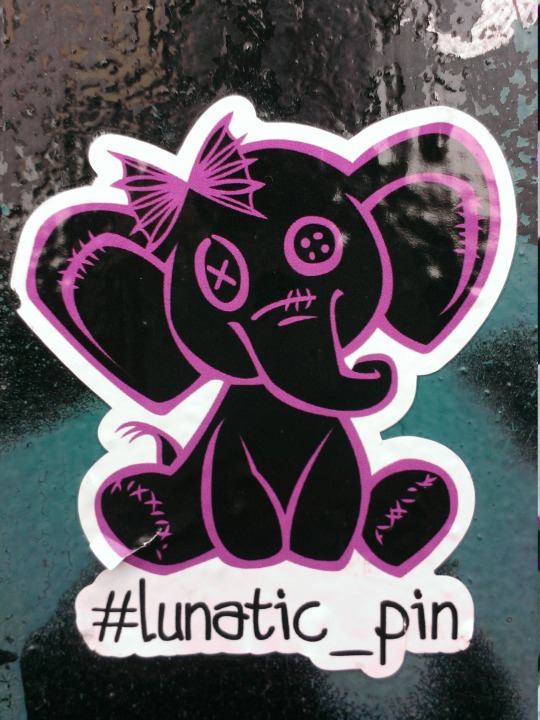
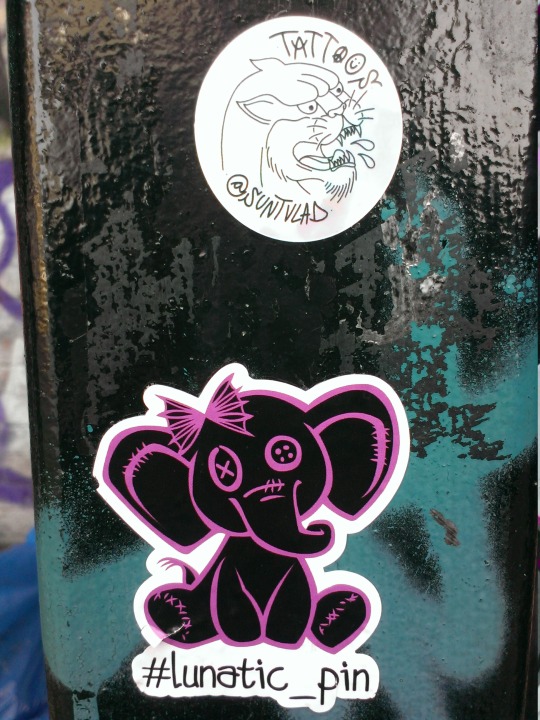
#lunatic_pin handmade clothing and @suntvlad tattoos
stickers around Camden Canal Towpath, 2020
https://lunaticpin.co.uk/ - Colourful, comfy and a bit crazy clothes with a touch of punk... always 100% handmade. From scraps to pretty accessories: a stylish way to have zero-waste.
Every item is handmade in London with love, care and passion. Lunatic_pin was born from the passion of creating something special and unique, together with the desire to share those creations with like-minded people who can comprehend and appreciate the everlasting beauty of handmade clothing.
#lunatic_pin#handmade clothing#@suntvlad#stickers#sticker art#street art#canal towpath#a touch of punk#scraps to accessories#zero-waste#handmade#custom clothing#htc one sv#opencamera
0 notes
Text
I think we a group need to consider what the early “zero waste” movement did in the 2010s. You know. They’d keep “all” their waste in a glass jar, live in a nice apartment somewhere in LA where they had easy access to a refill store and didn’t stop to consider that just existing in the US creates waste they couldn’t see.
I remember watching a video in 9th grade (around 2013) about a chick who did that and even then I was like “that’s bullshit” and it really turned me off the zero waste movement.
The inherent classism of a lot of zero waste purists created a wall between me and them, where instead of them admitting their privilege, they simply said “anyone can do this”. Most people can’t. A zero waste refill store does not exist in my state! Sure, I could try online but this is 1. More expensive- something my dirt poor family could not do at the time and 2. Creates more carbon emissions!
This isn’t to say zero waste is bad- it’s simply a standard most Americans can’t reach. I think this is why I’m so drawn to solarpunk, because I think solarpunk recognizes the classism that is in a lot of eco-friendly products and movements (something I do think is being addressed- I’ve seen more affordable products now than I did in high school). Solarpunk includes diy- reusing packaging that many of us still have to buy because we can’t afford the eco-friendly version.
Idk I just had some thoughts
4K notes
·
View notes
Text
A Simple Guide to Zero Waste Living: Essential Swaps to Easily Reduce Waste
Embarking on a journey toward a zero-waste lifestyle might sound like a daunting task, but fear not! Making small, sustainable changes can have a big impact. In this guide, we’ll explore zero waste essentials categorized for different areas of your life, making it easy to transition to a more eco-friendly way of living.
Kitchen Essentials: Minimizing Waste Where It Begins
Reusable Shopping…
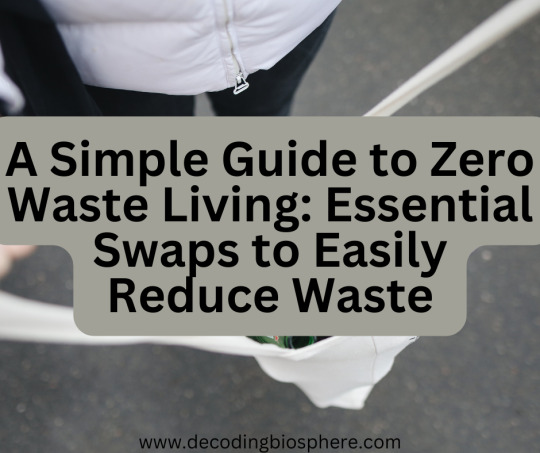
View On WordPress
0 notes
Text
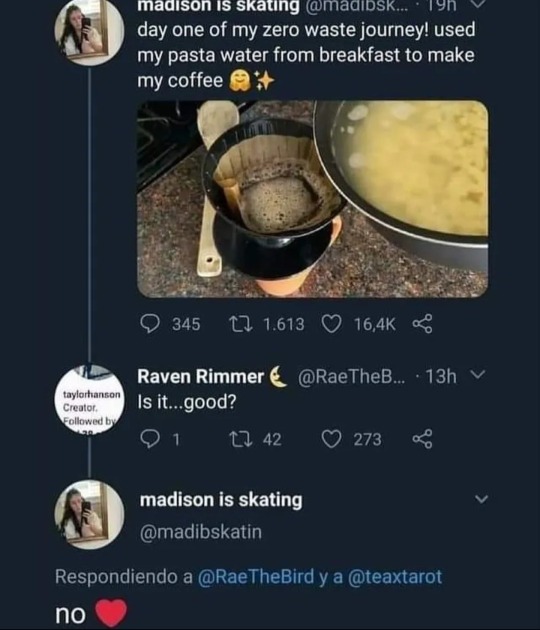
no ❤
11K notes
·
View notes
Text
Anti capitalistic methods of self reliance!
Everyday items:
Plastic bags can be replaced by cloth bags you can sew, without any prior knowledge of sewing, from any old shirt you were going to throw away
Toilet paper can partly or completely be replaced by 'Family cloth', which is a series of cloth napkins cut to the size you like, which are then washed after each use! There's no risk of disease if only used for number one, for number two they need to be submerged into peroxide liquid in order to be safely cleaned. Even if you only use them for number one to stay safe, being reusable and costing nothing they will save you a lot in not having to buy toilet paper
Paper towels can be replaced by little cut-out cloths you can easily wash after use, or a simple kitchen and bathroom cloth for cleaning
Paper tissues have originally been handkerchiefs, washable and reusable, zero waste option (and they can be very pretty too!)
Laundry detergent can be replaced by horse chestnuts, or conkers! If cut open and submerged in water, they will produce soapy water, which is equally good at cleaning as your laundry detergent, completely environmentally friendly and free if you foraged the chestnuts. They can be collected and dried to use for the entire year, and you can tie them up in a sock to put in your washing machine.
Cleaning products can be replaced by vinegar, and if you hate the smell you can change it by infusing citrus peels in it! It will smell like oranges and lemons after you leave them in there for a few weeks
Cleaning products can also be self-made, by fermenting food scraps, it's called 'enzyme cleaner' and it can clean most of things in a completely environmentally friendly way!
Shampoo can be self-made, or replaced with options like herbal teas, which will also ensure that your hair no longer gets greasy, as grease is the result of using shampoo
Menstrual pads can be sown from any discarded pieces of cloth, they only need to be submerged in cold water after use in order for blood to wash out. Additionally you can make washable menstrual panties, which make sure your pads don't move in there!
Simple medicine for aches like stomach cramps, headaches, anxiety, sore throat can be found in the basic knowledge of herbalism, and simply making teas from herbs that soothe these issues. They will not be able to cure a heavy disease, but are able to provide momentary relief from annoying aches!
Immunity booster syrup can be made out of elderberries, if you're careful about not getting any seeds or stems in!
if you're growing food, you can grow your own dish sponges, and washing sponges, the plant is called 'Loofah' and you can grow a whole lot in one season then use them for years
Reuse plastic items for as long as you can, to lessen the amount being thrown into landfills, and if you need new items, aim to get a not-plastic one
If you have lots of paper trash or newspapers, you can learn to make baskets from it.
Instead of throwing away food scraps, you can try setting up a simple composting bin and also get some valuable free soil, that is great for growing little plants and herbs in it
If you're composting on a big scale, the heat compost produces can be used to heat a room
getting into hobbies like soap making, pottery, woodcarving, sewing, knitting or weaving can also save you a lot of purchasing because you realize you can simply make that thing yourself, and in better quality than it would be available at the store
Saving water and energy:
Accumulating water in a big pot while you're washing dishes, then using that water to water your houseplants is safe, especially if you're not using a lot of detergent, and it saves a lot of water
To save energy when cooking in a pot in the stove, wait until your pot starts boiling, then take it off the stove, and wrap it in a cloth, then a towel, then a blanket, and leave it wrapped up. The layers of cloth are making it difficult for the heat to escape the pot, ensuring it will keep very high temperature for half an hour, cooking as if it was on the stove. If it needs to cook longer, you can just put in on the stove for a minute to get it back to boil. You can cook pasta, rice, beans, potatoes, soups, stews, risotto, pretty much anything with long cooking time like this.
If your water boiler is big, you don't need to leave it on at all times, I've reduced my electricity bills by a lot by turning it on only when I intend to use the hot water. In the summer, if you have access to a natural body of water, use that for washing!
If you own a property, watch where the water is naturally going and accumulating; you can collec t this water and set up a system to use it for gardening/any outdoor use
if you're building a structure, making sure that the sun hits the windows in the winter, and that the place is protected from the wind by growing trees as a wind shield, will save loads of energy in heating and cooling it, as well as making sure the structure is well insulated
Heat/cool only the parts of the structure/house that you're using, making it both environmentally friendly and ensuring you don't have a too big temperature difference when you go outside, making you healthier
Try an experiment were you go a day without electricity and see what you can use as alternative in this situation; it's okay if you fail, it will provide you with knowledge of how dependant you are on the energy, and the ideas of what you can possibly do when without!
Clothing:
If sewing clothing from scratch is something that appeals to you, that is ideal for self-reliance! It is likely that after just a bit of practice, you'll be able to sew more quality items than are sold, because current fashion items are made to fall apart, and you can make your clothing strong and durable.
Sharing clothing you no longer want to wear, and letting others know they can offer their unwanted pieces to you can provide you not only with practical clothing, but you can use all fabric, buttons, zippers and other materials to sew! You can, again with minimal practice and even by hand-sewing, make your own bags, tablecloths, placemats, pillows, blankets, decorations, hats and scarfs
Visible mending, embroidering, adding details or creating your own little alterations on clothing will not only provide a sense of accomplishment, but enrich your life in the way of skill development and being able to make and mend things with little resources
Learning about history of textiles and what fast fashion is doing to the environment provides appreciation and love for sewing and creating textiles, and could inspire you to try and see how it feels to do!
Any piece of clothing that is no longer fit to be remade into something new, can still be cut into pieces and used for cleaning, as a paper towel replacement, for wiping the floor or wiping your shoes, and if it's soft, for pillow filling!
For extra clothing or furniture, you can join online groups named 'buy nothing' and 'sharing is caring', where people will often gift extra clothes and furniture for free, sometime appliances and electronics too
Food:
If any outside space is available, learning to garden is an excellent investment in food security
Seeds can be harvested from plants you already have, gifted from neighbour or friend gardeners, and some can even be taken out of store-bought produce
Soil can be taken from the forest ground which has composted leaves as topsoil, dig under a tree for best results
If no outside space is availabe, dwarf plants, herbs, and greens can be grown in containers, clean your air while they also provide food
Learning to forage for wild edible plants will provide both entertainment and free food! Any wild plant you find is likely to be more rich in nutrients than a cultivated plant, making your diet well rounded and healthy
Learning to grow trees and care for them will provide free food not only for you, but for generations to come, as well as offset the damage from the climate change. Knowing how trees work and how to prune and nourish them is powerful knowledge.
Preserving food:
Ways of preserving your food long-term are curing (for onions, potatoes, garlic, pumpkins), canning (tomatoes, peppers, fruit), fermenting (cabbage, hot peppers, turnips), dehydrating and sun-drying (tomatoes, fruit, herbs, hot peppers, mushrooms)
Growing and collecting food during warm months and then saving them for winter was done by people for centuries and it provides a safe and reliable access to food all year round
Buying cheap produce when it's in-season and preserving it can save you a lot of money and bring you far in self-reliance
Making your own recipes and then getting to eat them later in the season bring a sense of accomplishment and pride, as well as providing a zero waste food option
Cooking food from scratch is made easier by having some of your food preserved, because a lot of the time you've already prepaired most of your ingredients, and only have to place them in the pot
If you already know to make your own bread, you can also try making your own yeast, by mixing flour and water, and letting it ferment while adding more flour and water every day. It can last forever.
If you're interested in knowing more about gardening, herbalism, tree care, and foraging, check the 'Homesteading Survival Knowledge' masterlist, filled with links on these specific topics!
These are not ideas that anyone should quickly or immediately integrate in their life; instead, trying whatever seems interesting and appealing, slowly learning about it and trying one thing at the time is more encouraging and sustainable! I myself have spent years learning and integrating these, enabling me to feel happy and confident doing any and all of this. If this is overwhelming, pick whatever feels appealing and do only that! Forget the rest until it feels easy and fun thing to try out.
#anti capitalism#homesteading#self reliance#permaculture#alternatives to capitalism#growing food#environment#zero waste
436 notes
·
View notes
